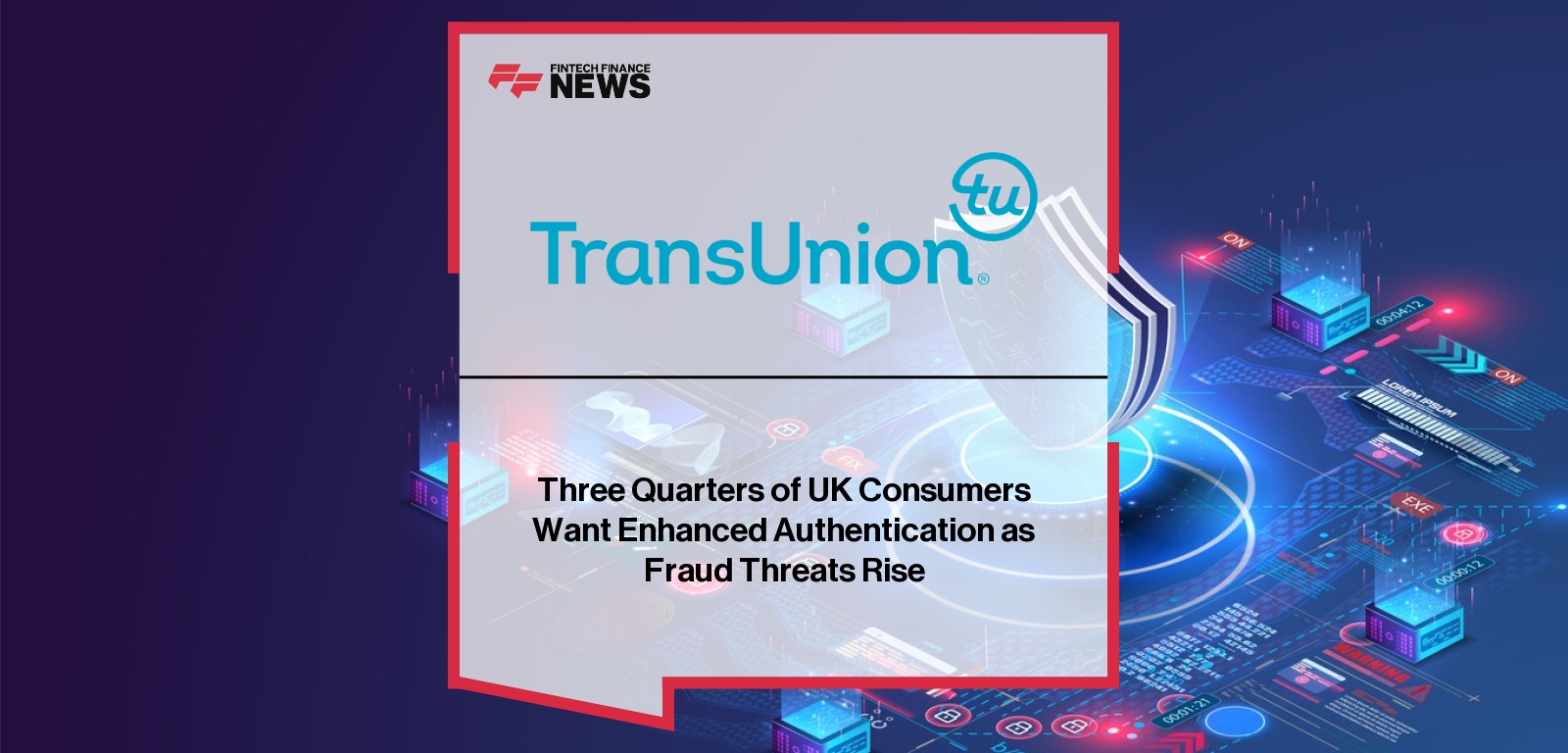Breaking News

Three Quarters of UK Consumers Want Enhanced Authentication as Fraud Threats Rise
According to the newly-released TransUnion 2025 UK Fraud and Identity Report, UK consumers continue to be targeted by fraudsters through a wide range of channels, with one in two (50%) consumers reporting a fraud attempt had been made against them in the last three months and many even reporting to falling victim.
According to TransUnion’s Consumer Pulse survey, 14% of UK respondents reported they had lost money to fraud in the last year alone[i], through various methods including third-party seller scams, fraudulent charges, and account takeover. Notably, consumers are increasingly favoring account security over ease of access, with over three quarters (78%) of consumers stating they don’t want access to their accounts without being explicitly authenticated first, and nearly half (49%) stating they don’t mind being authenticated again after an initial login – for example, when making a payment or changing a password.
“Consumer expectations are challenging the status quo for organisations as they design their digital experiences,” said Chad Reimers, general manager of fraud & identity at TransUnion in the UK. “Quick and seamless journeys have become the norm. However, consumers are increasingly demanding trust as part of their interactions with digital channels. There are increasing demands from consumers to ensure security and authentication – and this spans across sectors, from financial services, to gaming, to online dating. These demands are challenging businesses to consider holistic data and technology capabilities to build out trust signals via identity, digital, and device attributes”.
UK suspected digital fraud rates decline, driven by more robust measures
The rate of suspected digital fraud attempts in the UK among TransUnion TruValidate™ Device customers reduced from 6.4% in 2020 to 3.0% in 2024, following the peak seen during the pandemic.
This level of suspected fraud contrasts markedly with increasing external fraud pressures and is due – in part – to organisations optimising their fraud prevention strategies, employing more advanced analytical capabilities, and enhancing underlying data such as device recognition and non-human activity detection.
Online Communities and Video Gaming Among Top Industries Targeted by Suspected Digital Fraud Globally
Online Communities, which include organisations such as online dating and forums, had the highest rate of suspected digital fraud[ii] attempts globally in 2024. Nearly 12% of all attempted transactions occurring in online communities were suspected to be digital fraud last year. This is closely followed by video gaming (11%), gaming (including online betting, poker, etc.) at 8%, and retail (8%) rounding out the top four.
While gaming saw a significant year-over-year (YoY) volume change (up 20%), telecommunications (-79%), insurance (-29%) and video gaming (-23%) saw the greatest decreases in suspected digital fraud volume YoY.
“Digital fraud on community platforms is by no means a new phenomenon. However, in 2024, it appears that fraudsters targeted these areas with a renewed vigor,” said Richard Tsai, senior director of global fraud solutions at TransUnion. “Cybercriminals, taking advantage of the trust inherent on community-based platforms, targeted members with a wide range of scammer solicitations, the most reported type of digital fraud in communities.”
Online Communities Saw the Highest Suspected Digital Fraud Rates in 2024 Globally, While Gaming Saw the Greatest Volume Increase
| Industry | Suspected digital fraud attempt rate 2024 | Change in volume of suspected digital fraud attempts from 2023 to 2024 |
| Online Communities (online dating, forums, etc.) | 11.6% | +9% |
| Gaming (online sports betting, poker, etc.) | 7.8% | +20% |
| Retail | 7.6% | -45% |
| Financial services | 4.9% | +3% |
| Telecommunications | 3.0% | -79% |
| Insurance | 2.0% | -29% |
Source: TransUnion TruValidate™
The UK has followed this global trend, as online communities became a key target sector for fraudsters in the UK, with both the risky rate and volume of suspected fraudulent transactions increasing by 35% and 30% respectively in 2024 for transactions where the consumer or fraudster was located in the UK.
TransUnion came to its conclusions about digital fraud based on intelligence from TransUnion TruValidate. To find out more about fraud trends in the UK, you can download the 2025 UK Fraud and Identity Report, which includes UK sector deep-dives into Financial Services, Gaming, Insurance, and Online Communities.
Companies In This Post
- FinTech Australia Urges Government to Open Procurement Pipeline and Fix Funding Settings for Fintechs Read more
- TransUnion CIBIL and State Bank of India’s YONO App Collaborate to Integrate CIBIL Score and Report Into Everyday Digital Banking Read more
- Google on Building Secure Foundations for Fintech Growth Read more
- Tabadulat & Minted Connect Sign Strategic Collaboration to Enable Shariah-Compliant Gold-Backed Investments Read more
- TransferMate Completes Global Rollout of Vivox AI’s Next Generation KYB Automation Read more

















